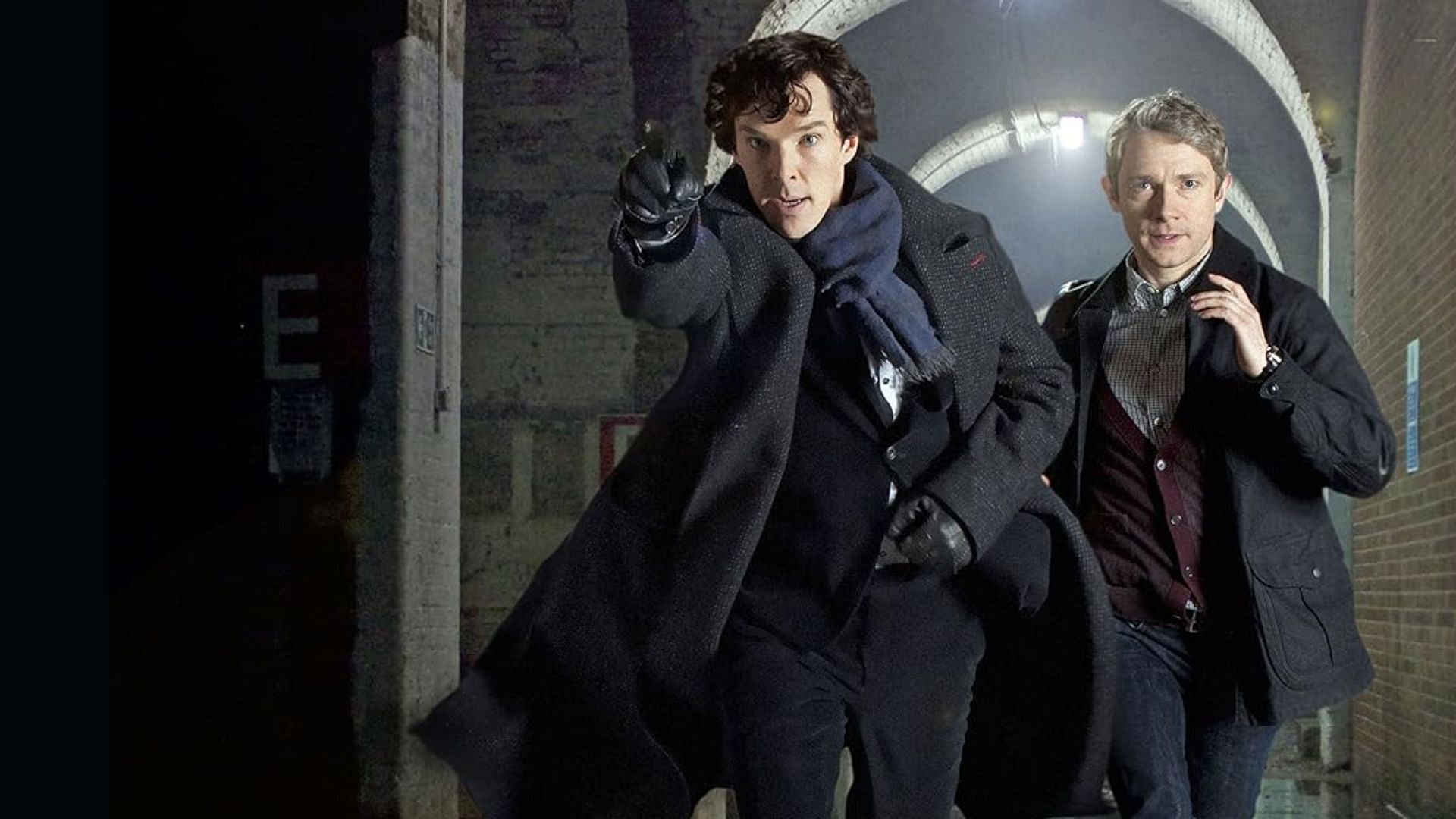Sherlock ending explained: What happens in the finale?

BBC’s Sherlock, set in modern-day London, follows the legendary sleuth Sherlock Holmes (Benedict Cumberbatch) and ex-army doctor John Watson (Martin Freeman) as they untangle crimes that are as bizarre as they are brainy.
Created by Mark Gatiss and Steven Moffat, the show flips Sir Arthur Conan Doyle’s classic tales on their heads while keeping the heart of the mystery alive.
From taxi chases across London to elaborate murder puzzles, each episode feels like a mini-movie. The razor-sharp dialogue and chemistry between Cumberbatch and Freeman are a big highlight. Add in a darkly charismatic Moriarty and the occasional Mycroft eye-roll, and things stay spicy.
Fans gravitated to Sherlock for its pacing, style, and that unrelenting tug-of-war between logic and emotion. It wasn't just the cases—it was the characters cracking under pressure, revealing layers beneath all that British wit.
Then came Eurus in season 4 - the secret sister. A psychological twist no one saw coming. The final season went full mind maze, and Holmes was forced to play the game.
Questions Answered in Sherlock Finale
What is Sherrinford?

Sherrinford is the name of the island prison where Eurus is held. Although it's supposed to be high-security, it gets breached in the episode. Despite living in isolation most of her life, Eurus manages to disguise herself as a therapist, a young woman, and a serial killer’s child.
The facility includes a series of rooms featuring pre-recorded messages from Moriarty and a number of complex psychological challenges. The use of the name “Sherrinford” had been hinted at throughout season 4, referencing the unused name of a third Holmes sibling from early drafts of the original stories. The reveal serves as a narrative device that redirects attention and speculation.
Understanding Eurus Holmes

Following the reveal in The Lying Detective, Eurus Holmes is established as highly intelligent but emotionally detached. At age five, she asked Mycroft what pain was, highlighting her lack of emotional understanding.
Throughout the episode, Eurus takes on multiple identities and orchestrates elaborate scenarios, including convincing performances as a therapist and a victim.
She is responsible for several deaths, including the prison governor and others, referenced in a nod to Conan Doyle’s The Three Garridebs. Despite her isolation at Sherrinford, Eurus demonstrates the ability to manipulate others, including the facility’s guards. Her interactions with Holmes suggest a complex dynamic, especially in scenes involving music.
While she stops communicating verbally by the end, she continues playing violin duets with him. The ending raises questions about her long-term influence and whether she could reappear in future storylines. Something to revisit if the show ever returns to screens.
Who was Redbeard?

Victor was actually Sherlock’s childhood friend, not a dog. They used to play together while Mycroft stayed away and Eurus watched from a distance. Jealous and angry, Eurus pushed Victor into a well after making up a riddle she thought Sherlock could solve. He couldn’t, and Victor drowned. After that, Eurus was sent to an institution for everyone’s safety.
Sherlock was so traumatized that he blocked out the memory, imagining Victor as a dog named Redbeard and forgetting he had a sister. These memories return during the events at Sherrinford, explaining his nightmares and emotional changes throughout the series.
The reveal repositions earlier references to Redbeard and offers additional insight into Sherlock’s childhood and trauma. This part of the story adds weight to the final confrontation between Sherlock and Eurus.
Mycroft's relationship with his family

The Final Problem offered a closer look at Mycroft Holmes, revealing more about the eldest sibling than any previous episode. His fondness for melodramas, fear of clowns, and past role as Lady Bracknell added unexpected dimensions to a character often seen as purely logical.
Dialogue between the brothers highlighted how much Mycroft values Sherlock’s opinion, particularly when Holmes compliments his acting. The episode also revealed how deeply Mycroft is invested in his family’s safety. When Holmes was forced to choose between John and Mycroft, Mycroft quickly offered himself, understanding the emotional weight behind that decision.
He also spent years monitoring his brother's mental well-being through subtle cues, never forcing him to face memories of Eurus until it became unavoidable. His decision to tell their parents that Eurus had died was part of that long-standing approach to contain the damage quietly, even if the method was questionable. His reaction to violence showed restraint, not detachment.
Watson's role in the finale

John Watson’s bond with Holmes came into sharper focus, revealing just how much both have leaned on each other through loss and trauma. John, still processing the impact of war and Mary’s death, made choices that reflected a deep sense of loyalty, choosing to stay by Sherlock’s side even when it meant putting himself at risk.
His emotional investment was evident in quiet moments, like when Sherlock insisted he stay during a private family discussion, and John, without a word, simply did. That unspoken connection seemed to carry more weight than any direct conversation.
The show had often explored Homes' need for John, but this episode underscored how mutual that need really was. While the timeline between episodes remains unclear, references to Mary were brief, leaving open questions about how John continues to process her absence.
Sherlock's confrontation with Eurus

Sherlock’s final test wasn’t about logic or deduction—it was about connection. Eurus set the stage with emotional traps, like the call to Molly Hooper, where Sherlock had to make her say “I love you” to save her life. The fallout lingered, though the story didn’t return to it.
The toughest choice came next: kill John or Mycroft. Instead, Sherlock turned the gun on himself, sidestepping the dilemma altogether. His decision reflected something deeper than intellect—a refusal to sacrifice either relationship. Meanwhile, Eurus became the final mystery. Her plan unraveled into a plea for attention, something missing since childhood.
Through the fake plane crash and cryptic games, Holmes reached her not with force, but with empathy. The memory of Victor, once buried, returned. So did the sister he forgot. In piecing together her story, Holmes confronted his own. It wasn’t about being the smartest—it was about understanding what truly mattered.
Sherlock’s complex relationships with Mycroft, John, and Eurus reveal deeper layers of his character. As the series wraps up, the balance of love, loyalty, and empathy ultimately defines him. The unresolved questions about his past and family leave room for reflection, making the finale’s emotional depth even more impactful. The show is currently available to stream on PBS.




